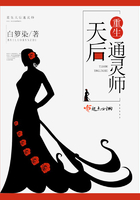Father Brown's hand went half-way to his head, with the gesture of a man remembering somebody's name. He knew now what it was that was neither soda-water nor the snorting of a dog.
"Well," ejaculated the staring Major, "I never heard before that a service revolver was a thing to be sneezed at."
"Nor I," said Father Brown faintly. "It's lucky you didn't turn your artillery on him or you might have given him quite a bad cold."
Then, after a bewildered pause, he said: "Was it a burglar?"
"Let us go inside," said Major Putnam, rather sharply, and led the way into his house.
The interior exhibited a paradox often to be marked in such morning hours: that the rooms seemed brighter than the sky outside; even after the Major had turned out the one gaslight in the front hall.
Father Brown was surprised to see the whole dining-table set out as for a festive meal, with napkins in their rings, and wine-glasses of some six unnecessary shapes set beside every plate. It was common enough, at that time of the morning, to find the remains of a banquet over-night; but to find it freshly spread so early was unusual.
While he stood wavering in the hall Major Putnam rushed past him and sent a raging eye over the whole oblong of the tablecloth.
At last he spoke, spluttering: "All the silver gone!" he gasped.
"Fish-knives and forks gone. Old cruet-stand gone. Even the old silver cream-jug gone. And now, Father Brown, I am ready to answer your question of whether it was a burglar."
"They're simply a blind," said Cray stubbornly. "I know better than you why people persecute this house; I know better than you why--"
The Major patted him on the shoulder with a gesture almost peculiar to the soothing of a sick child, and said: "It was a burglar.
Obviously it was a burglar."
"A burglar with a bad cold," observed Father Brown, "that might assist you to trace him in the neighbourhood."
The Major shook his head in a sombre manner. "He must be far beyond trace now, I fear," he said.
Then, as the restless man with the revolver turned again towards the door in the garden, he added in a husky, confidential voice:
"I doubt whether I should send for the police, for fear my friend here has been a little too free with his bullets, and got on the wrong side of the law. He's lived in very wild places; and, to be frank with you, I think he sometimes fancies things."
"I think you once told me," said Brown, "that he believes some Indian secret society is pursuing him."
Major Putnam nodded, but at the same time shrugged his shoulders.
"I suppose we'd better follow him outside," he said. "I don't want any more--shall we say, sneezing?"
They passed out into the morning light, which was now even tinged with sunshine, and saw Colonel Cray's tall figure bent almost double, minutely examining the condition of gravel and grass. While the Major strolled unobtrusively towards him, the priest took an equally indolent turn, which took him round the next corner of the house to within a yard or two of the projecting dustbin.
He stood regarding this dismal object for some minute and a half--, then he stepped towards it, lifted the lid and put his head inside.
Dust and other discolouring matter shook upwards as he did so; but Father Brown never observed his own appearance, whatever else he observed. He remained thus for a measurable period, as if engaged in some mysterious prayers. Then he came out again, with some ashes on his hair, and walked unconcernedly away.
By the time he came round to the garden door again he found a group there which seemed to roll away morbidities as the sunlight had already rolled away the mists. It was in no way rationally reassuring; it was simply broadly comic, like a cluster of Dickens's characters.
Major Putnam had managed to slip inside and plunge into a proper shirt and trousers, with a crimson cummerbund, and a light square jacket over all; thus normally set off, his red festive face seemed bursting with a commonplace cordiality. He was indeed emphatic, but then he was talking to his cook--the swarthy son of Malta, whose lean, yellow and rather careworn face contrasted quaintly with his snow-white cap and costume.
The cook might well be careworn, for cookery was the Major's hobby.
He was one of those amateurs who always know more than the professional.
The only other person he even admitted to be a judge of an omelette was his friend Cray--and as Brown remembered this, he turned to look for the other officer. In the new presence of daylight and people clothed and in their right mind, the sight of him was rather a shock.
The taller and more elegant man was still in his night-garb, with tousled black hair, and now crawling about the garden on his hands and knees, still looking for traces of the burglar; and now and again, to all appearance, striking the ground with his hand in anger at not finding him. Seeing him thus quadrupedal in the grass, the priest raised his eyebrows rather sadly; and for the first time guessed that "fancies things" might be an euphemi**.
The third item in the group of the cook and the epicure was also known to Father Brown; it was Audrey Watson, the Major's ward and housekeeper; and at this moment, to judge by her apron, tucked-up sleeves and resolute manner, much more the housekeeper than the ward.
"It serves you right," she was saying: "I always told you not to have that old-fashioned cruet-stand."
"I prefer it," said Putnam, placably. "I'm old-fashioned myself; and the things keep together."
"And vanish together, as you see," she retorted. "Well, if you are not going to bother about the burglar, I shouldn't bother about the lunch.
It's Sunday, and we can't send for vinegar and all that in the town; and you Indian gentlemen can't enjoy what you call a dinner without a lot of hot things. I wish to goodness now you hadn't asked Cousin Oliver to take me to the musical service. It isn't over till half-past twelve, and the Colonel has to leave by then.
I don't believe you men can manage alone."















